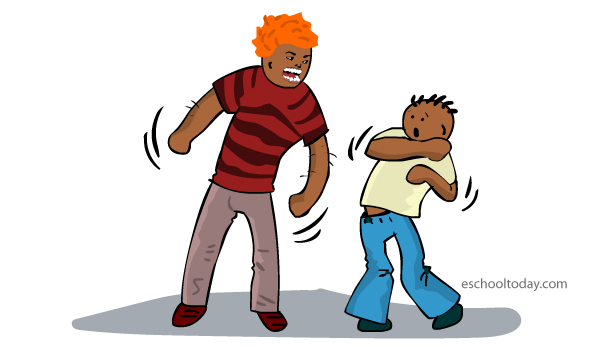- Bullying
What is bullying?
Have you ever been called funny names that you did not like at school? Have you ever been repeatedly laughed at by someone or a group of kids, or a gang in your class in a way that makes you sad? What about repeated threats and even physical abuse by someone for some reason? Probably. It is estimated that about 20% of all kids are bullied in school at any time, and about half have experienced bullying at some point before.
What is that about?
Bullying is when someone keeps doing or saying things to have power over you. This includes this like:
- Calling you stupid names
- Saying or writing nasty things about you
- Leaving you out of activities, not talking to you, or threatening you
- Making you feel uncomfortable or scared
- Taking or damaging your things, hitting or kicking you
- Making you do things you don’t want to do.
No doubt, this can make you feel unhappy, afraid, uncomfortable, depressed, hurt, and alone. It can negatively affect your performance in class.
Research shows that bullying has three main ingredients:
Aggressive behavior:
Physical or verbal attack intended to cause bodily harm or cause shame
Imbalance of Power:
The person bullying is stronger, more popular, and able to overpower the victim in many ways
Repetition:
The behavior re-occurs often, leaving the victim scared of another attack soon again.

Bullying could come in any of these four ways:
- Physical: This includes threatening, or doing the action of hitting, kicking, pushing, and any other physical harm. Others include stealing, hiding, or destroying your belongings. Sometimes, you are forced to do things you don’t want to do.
- Verbal: This includes calling you names, poking fun at you, teasing, people giggling, insulting, and laughing at you each time they see you.
- Relationship: This also includes people refusing to talk, share or allow you to join in games and play activities. Others include spreading lies (or even or truths about something bad you did)
- Cyber, Internet, or Online: This includes people using the Internet to send you dirty, embarrassing, and dangerous messages, intended to cause problems for you.
Reading Sources
- Facts About Bullying: https://www.stopbullying.gov/resources/facts#_Definition_of_Bullying
- Types of Bullying in the Senior High Schools in Ghana, Kwasi Otopa Antiri. Journal of Education and Practice www.iiste.org ISSN 2222-1735 (Paper) ISSN 2222-288X (Online) Vol.7, No.36, 2016
